voting rights
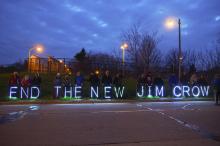
Our lawyers have made a strong case this week that the voter ID component of this legislation places an unnecessary and undue burden on voters — especially poor and African-American voters. We will ultimately win this fight in the courts. But this case is about much more than defeating voter ID laws. It is about a central question of 21st-century American politics: is a multiethnic democracy possible?
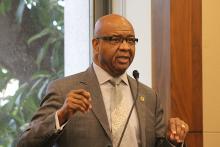
Fifty years after the signing of the Voting Rights Act, the president of the Progressive National Baptist Convention said black churches will be redoubling efforts to maintain access to the ballot box.
The act, signed into law by President Lyndon B. Johnson 50 years ago Aug. 6, was a crowning achievement of the civil rights movement. But in 2013 the Supreme Court invalidated key provisions, and many states, nearly all of them under Republican control, passed new voting restrictions that critics say target minority voters.
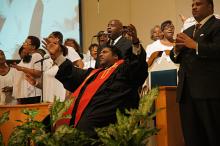
NC NAACP vs. McCrory is a necessary interruption to the institutionalized racism that is killing black and brown people. For all the talk around “black lives matter,” Rev. Barber warns, we are in danger of only affirming that black death matters if we accept that the martyrs of Charleston deserve nothing more than the removal of a Confederate flag from their state house. Yes, the flags should come down. But if they go away while the unjust laws remain, then it may be even harder for us to see that the root of injustice is in an imbalance of power.
And the fundamental power of citizenship in this country is still the franchise.

The journey to end systems of injustice begins with a single step. This theme resonates throughout the recently released film Selma, which recounts the events leading up to the famous Selma-to-Montgomery march. Led by Dr. Martin Luther King Jr., this march catalyzed the full enfranchisement of people of color through the Voting Rights Act of 1965.
The Voting Rights Act is considered to be one of the most successful achievements of the civil rights movement. But 50 years later, the residue of Jim Crow laws that banned people of color from voting lingers today in a new, subtle form: disenfranchisement laws for people with felony convictions.
Michelle Alexander’s book, The New Jim Crow, examines how these laws strip minority communities of their voice in the public sphere because of the disproportionately high percentage of racial minorities “swept into” America’s mass incarceration system.
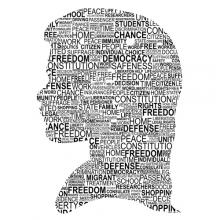
In a perfect world, women can choose to be whomever they want. But there is not yet a country on earth in which that is actually true. That is why we need feminism.
That there’s disagreement over how we talk about women’s empowerment in the U.S. isn’t surprising — feminism is a collection of unique people with unique visions of a good life, trying to figure out how to preserve past and present good, correct past and present wrongs, and forge a new way ahead together.
But it is tragically, perennially clear why speaking up against male-controlled narratives in church or school or novels or movies or business or government, against generations of excused behavior for men and oppression for women, against ongoing systemic injustice is still so crucially necessary.
From reading what these “anti-modern-feminists” have written, I don’t believe any of them would take umbrage with that. It’s a pity, then, they are rejecting the term feminism — their challenges would be great additions to the dialogue. More education and conversation about what feminism is, and how we do it, and where it can go, is clearly needed. Without it, I’m not at all sure how much farther forward we’ll be able to go.
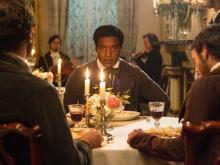
The most controversial sentence I ever wrote, considering the response to it, was not about abortion, marriage equality, the wars in Vietnam or Iraq, elections, or anything to do with national or church politics. It was a statement about the founding of the United States of America. Here’s the sentence:
"The United States of America was established as a white society, founded upon the near genocide of another race and then the enslavement of yet another."
The comments were overwhelming, with many calling the statement outrageous and some calling it courageous. But it was neither. The sentence was simply a historical statement of the facts. It was the first sentence of a Sojourners magazine cover article, published 26 years ago titled “America’s Original Sin: The Legacy of White Racism.”
An extraordinary new film called 12 Years a Slave has just come out, and Sojourners hosted the premiere for the faith community on Oct. 9 in Washington, D.C. Rev. Otis Moss III was on the panel afterward that reflected on the film. Dr. Moss is not only a dynamic pastor and preacher in Chicago, but he is also a teacher of cinematography who put this compelling story about Solomon Northup — a freeman from New York, who was kidnapped and sold into slavery — into the historical context of all the American films ever done on slavery. 12 Years is the most accurate and best produced drama of slavery ever done, says Moss.
In her New York Times review, “ The Blood and Tears, Not the Magnolias,” Manohla Dargis says, 12 Years a Slave “isn’t the first movie about slavery in the United States — but it may be the one that finally makes it impossible for American cinema to continue to sell the ugly lies it’s been hawking for more than a century.” Instead of the Hollywood portrayal of beautiful plantations, benevolent masters, and simple happy slaves, it shows the utterly brutal violence of a systematic attempt to dehumanize an entire race of people — for economic greed. It reveals how morally outrageous the slave system was, and it is very hard to watch.
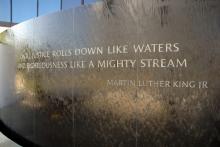
I was born in 1969 and thus am in the first generation of African-Americans to grow up with laws and policies that say to the rest of America that I am equal. I saw housing opportunities open up for me as my parents “broke the block” and became the first African-Americans to move onto an all-white block in the East Mt. Airy section of Philadelphia in 1970. I saw educational opportunities open up such that I was able to attend a nearly all-white private, college-prep high school in the suburbs. This was the fruit of the Civil Rights movement in my life growing up in the 1970s and 80s.
Soon hundreds of thousands will gather on the National Mall to commemorate the 50th anniversary of the March on Washington for Jobs and Freedom where the Rev. Dr. Martin Luther King gave his iconic “I Have a Dream” speech. That speech lived on for me in classrooms and in speech competitions and was etched on my heart so that I would carry that dream into the future.
The recent decisions by the U.S. Supreme Court to gut the enforcement section of the 1965 Voting Rights Act and the decision of the jury in the George Zimmerman trial have left me wondering about the dream, worried that it is under attack and worries that professed Christians are among those helping lead those attacks.
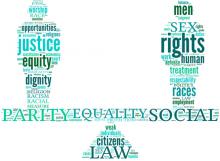
Adaptation is how a bitter and broken South survived its own worst instincts after the war. Progressive pockets emerged in college towns and later in large cities. Hungry for Northern business, the region became less racially polarized. In time, a black man could become mayor of Atlanta and another could become the Episcopal bishop of North Carolina.
The Rev. Martin Luther King, Jr.’s dream of 50 years ago came to seem possible. Distant, yet possible.
But now the dream has receded. The fact of a black president seems to have reopened a pulsing vein of racism. Operating under cover of fiscal austerity, vengeful state politicians are gutting decades of programs that helped the South move forward by helping blacks and Latinos to have a chance.
No more affirmative action, they say; no more dark-skinned citizens flocking to voting stations; no more voting districts shaped by fairness; no more protections from ground-level aggression against people of color.
Once again, as happened in the 19th century, impoverished whites who should be lining up to resist predatory behavior by the moneyed class are being turned against their own best interests by race politics.
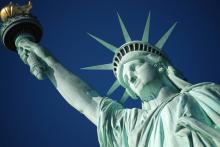
“If you love somebody, set them free. Free. Free. Set them free.” Of all the songs to come to mind during this Independence Day weekend, this one rings in my head. Sting, the artist, did not have America’s freedom celebration in mind when he coined these words. Honestly, the song has little to do with patriotism; it is more of a ballad of love lost and letting go. Nonetheless I dare to invoke it, as the words resonate with the spirit of autonomy that is so pervasive on July 4. “Set them free. Free. Free. Set them free.”
Each year at this time, our country focuses on liberty, the red-white-and-blue, and “My Country Tis of Thee.” I am grateful to live in the U.S. and the freedom this affords. Yet, what about persons who are not so independent — the unemployed who rely on federal subsidies, children whose schools are closing due to no fault of their own, and yes, the millions of Americans in the prison system? Although the Fair Sentencing Act of 2010 reversed the disparity between crack and cocaine convictions implemented by the Anti-Drug Abuse Act of 1986, the prison rate remains exorbitant. More than 2.2 million are still behind bars. The Texas execution rate is at 500 and counting. Forty-eight percent of persons in federal prisons were convicted of drug offenses, according to The Sentencing Project. A reversal in policy three years ago has not flipped today’s prison numbers. So many are not free.
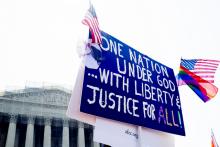
The words above the Supreme Court read, “Equal Justice Under the Law.” This week, two Supreme Court outcomes dramatically affected the reality of those words.
On Tuesday, in a 5-4 decision, a key component of the historic Voting Rights Act of 1965 was struck down, jeopardizing equal justice under the law especially for black, Hispanic, and low-income people whose voting rights have historically been assaulted and have continued to be suppressed as recently as the 2012 election. In fact, Section 4 of the Voting Rights Act — which required parts of the country that have been especially egregious in racially motivated voter suppression to get federal approval of any changes in their voting laws — was specifically used in the 2012 election to prevent new voter suppression. That provision has now been struck down, and efforts to increase barriers to voting are already underway in several states, especially in the South, that would suppress the future votes of Americans of color, especially those with lower incomes.
Equal justice under the law lost on Tuesday, June 25. The Supreme Court’s decision was morally shameful. ...
Contrast Tuesday’s decision with the final ones we saw handed down this week. ... I, along with a growing number of people in the faith community, believe that equal protection under the law is essential for our gay and lesbian friends and family members. While some Christians are conflicted about the theological issues involved, or even are unable to support homosexuality on a religious basis, they also don’t want churches to be the ones standing in the way of civil rights.

On Tuesday, the Supreme Court struck down part of the Voting Rights Act that was enacted in 1965 to root out racial discrimination in voting. The specific section of the Act that was stricken — Section 4 — set forth a formula for determining which jurisdictions need federal clearance before making even minor changes to voting procedures. The impact of striking Section 4 is that the most important part of the Act, Section 5, is now rendered useless. Section 5 provides that states, cities, and counties with a history of racial discrimination in voting must “pre-clear” changes to voting procedures with the Department of Justice or a special court in Washington, D.C. Without the formula in Section 4 to determine which states, cities, and counties the preclearance should apply to, the preemptive protection provided by Section 5 no longer exists, and any future challenges to changes in voting procedure must happen after such changes are already in effect.
The majority of the Court felt that racial minorities do not continue to face discriminatory voting practices, and that the preclearance requirement was based on 40-year-old facts that had no logical bearing on present day. Chief Justice Roberts, Jr., wrote:
“Our country has changed. While any racial discrimination in voting is too much, Congress must ensure that the legislation it passes to remedy that problem speaks to current conditions.”
The practical application of Tuesday's decision is that states will be able to enact potentially discriminatory laws that previously had been blocked. This was made immediately apparent in Texas, which announced after the ruling that voter identification laws would go into effect immediately.
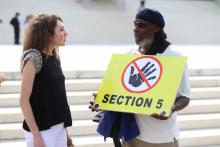
Today is a dark day in our nation’s history. In a 5-4 ruling, the Supreme Court ruled in the case of Shelby County, Alabama v. Holder that Section 4 of the Voting Rights Act is unconstitutional, rendering the 48-year-old legislation impotent to protect citizens from voter suppression. Section 4 lists the states that must obtain “preclearance” from the Department of Justice before instituting changes to their voter laws. In her dissenting opinion, Justice Ruth Bader Ginsburg, said: “Throwing out preclearance when it has worked and is continuing to work to stop discriminatory changes is like throwing away your umbrella in a rainstorm because you are not getting wet.”
Only 48 years ago, on March 7, 1965, men, women, and children absorbed blasts of water, bone-crushing blows from police batons, and profound humiliation as Selma, Ala., police dragged limp black bodies over concrete on the far side of the Edmund Pettus Bridge. They had assembled on that day, which came to be known as “Bloody Sunday,” to march from Selma to Montgomery in protest of voter suppression and intimidation that had plagued the entire South. Ten days later, President Lyndon B. Johnson sent the Voting Rights Act to Congress. The bill passed in the Senate on May 26 by a vote of 77 – 19 and passed in the House on July 9 of that year. President Johnson signed the Act into law with Dr. Martin Luther King, Rosa Parks, and others present on August 6.
Flash forward to Fall 2012. I launched a blog series called “Watch the Vote” because, as of August 2012, 30 states had introduced legislation or enacted laws to hinder voters’ access to voting over the previous year. The Fair Elections Legal Network crafted this map to chart the spread of legal voter suppression initiatives across the nation. Notice, Alabama is one of the states that has recently passed voter restriction law that has not been precleared by the Department of Justice. Its new law, requiring photo ID and proof of citizenship, was set to take effect in 2014 before the Supreme Court ruled last week that Arizona’s voter ID law, which Alabama used as a model for its own, is unconstitutional.
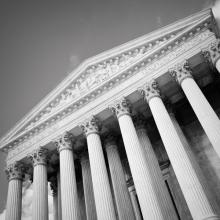
In a 5-4 decision, the Supreme Court today struck down a key section of the Voting Rights Act of 1965 that targeted states with histories of racial discrimination, saying the formula for choosing the states subject to "preclearance" is "based on 40-year-old data." The court's decision states that Congress can revise the formula under which it decides which jurisdictions are subject to oversight:
"Our country has changed, and while any racial discrimination in voting is too much, Congress must ensure that the legislation it passes to remedy that problem speaks to current conditions," the decision reads.
Congress could have updated the coverage formula at that time, but did not do so. Its failure to act leaves us today with no choice but to declare §4(b) unconstitutional. The formula in that section can no longer be used as a basis for subjecting jurisdictions to preclearance. Our decision in no way affects the permanent, nationwide ban on racial discrimination in voting found in §2. We issue no holding on §5 itself, only on the coverage formula. Congress may draft another formula based on current conditions. …
Read the full decision HERE.
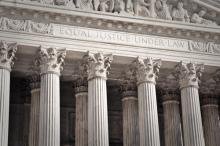
Our country’s laws represent our values and our moral compass as Americans. They set norms, define transgressions, and mete out consequences for actions. And almost 50 years ago, our nation realized the harassment, intimidation, bureaucratic shenanigans, and violence so many African-Americans and other minority communities experienced when trying to exercise their rights to vote and participate in our great democracy. Our intolerance of such injustice led to the passage of the Voting Rights Act of 1965 — a great triumph in the defense of life, dignity, and equality.
Notwithstanding the near-universal praise the Voting Rights Act has received for ending some of the most overt discriminatory practices in our country’s voting history, there are some saying the Voting Rights Act’s time has passed. In fact, on Wednesday, the Supreme Court will hear oral arguments from Shelby County, Ala., that a key provision of the Voting Rights Act is unconstitutional and should be struck down. These arguments are misguided. The Voting Rights Act remains a vital piece of our national moral commitment never to permit racial discrimination in elections again.
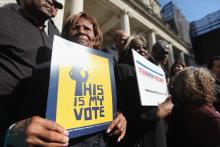
The 15th Amendment to the United States Constitution was the third in a triad of amendments crafted to protect the rights of recently emancipated African Americans. The 13th Amendment abolished slavery. The 14th Amendment granted citizenship to people who were once enslaved, regardless of race. The 15th Amendment, which was passed by Congress February 26, 1869 and ratified February 3, 1870, reads:
Section 1.
The right of citizens of the United States to vote shall not be denied or abridged by the United States or by any State on account of race, color, or previous condition of servitude —
Section 2.
The Congress shall have the power to enforce this article by appropriate legislation.
It took nearly a century of blood, terror, and tears, but in 1965 President Lyndon B Johnson and the 89th U.S. Congress passed the Voting Rights Act of 1965; legislation to enforce the 15th Amendment. Finally.
One year more than a decade later, in 1976, I walked hand-in-hand with my mother trudging up and down city blocks lined with row houses in our West Oak Lane neighborhood of Philadelphia. Each time we knocked and a neighbor came to the door, my mom, who served as the judge of elections for our neighborhood, asked: “Are you registered to vote?” If they weren’t, out came the clipboard.
I didn’t understand the legacy we were a part of that day, but with each sweep of the clipboard we were brandishing a non-violent weapon in the long fight of our ancestors to be and stay free. For 100 years — that’s five generations — they faced down the terror of burning crosses, threats to life and livelihood, and the elaborate labyrinth of Jim Crow voting laws — all set up to suppress their votes, all set up to crush their ability to exercise dominion.
So, when the Supreme Court announced recently that one of the cases it would take up in this session was a challenge to Section 5 of the Voting Rights Act, the hairs rose on the back of my neck.
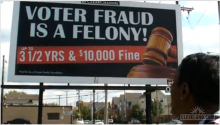
Fraud is a strong word. Webster's defines fraud as deceit and trickery, and an "intentional perversion of truth in order to induce another person to part with something of value or to surrender a legal right." Fraud is a serious matter.
The word "fraud" is on billboards around Ohio. I started noticing this a few weeks ago, when I was driving through a working class African American community in Cleveland and noticed a billboard that read: "Voter Fraud is a Felony: 3 1/2 years & $10,000 fine."
The red-and-black sign is accented by a large gavel in the lower right hand corner. A few days later, I noticed a similar billboard in Dayton, and late last week saw two such billboards near my home in urban Cincinnati. In an election season that has seen more jockeying around voter fraud and voter suppression than any in my memory, these billboards caught my eye.
Voter fraud sure sounds horrible, and based on these billboards in Ohio, one would imagine that it is an epidemic. After all, one of the hallmarks of American democracy is our fair and free elections.
But the billboards quickly created dissonance for me based on a recent meeting I and other pastors from Ohio Prophetic Voices enjoyed with Ohio Secretary of State John Husted. During the meeting, Husted told us that voter fraud is extremely rare and almost nonexistent. Statistics back up Husted's contention.
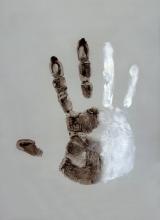
RACE WAS THE issue that changed the direction of my life. Growing up in Detroit in the early 1960s, the realities of white racism upended the world and church that I lived in.
What I saw and heard as a teenager painfully showed me that something was terribly wrong with my country and my religion. Trying to confront it got me virtually kicked out of my childhood church, led me into the civil rights and student movements, introduced me to the black churches, and set me on a path that would eventually bring me back to the good news of the gospel of Jesus Christ—which calls for social, racial, and economic justice. The historical tragedy, the “original sin,” of white racism in the United States is still a fundamental starting point to how I see the world.
So when I look at this election involving the first African-American president in U.S. history, I can’t help but go back to the critical questions of race. Let me be clear: To disagree with policies of President Obama and his administration is not racist. Agreements and disagreements are just that, and should not be correlated to race. And regardless of how we vote, we should all appreciate the fact that the role model of the Obama family living in the White House has convinced millions of young black men and women, and youth of all races—many for the first time—that they are really a part of this country and that they too could someday be president of the United States.
But I am concerned about how race has again distorted our politics. I want to speak directly to what those racial politics are and how people of faith should call them out and oppose them, no matter how we vote or what we think of the policies of the president.
A Commonwealth judge this morning blocked a Pennsylvania law requiring a photo ID to vote from being enforced in the upcoming election. The law was one of the most stringent in the country and has sparked a divisive political debate. AP reports:
“A judge on Tuesday blocked Pennsylvania's divisive voter identification requirement from going into effect before Election Day, delivering a hard-fought victory to Democrats who said it was a ploy to defeat President Barack Obama and other opponents who said it would prevent the elderly and minorities from voting.
“The decision by Commonwealth Court Judge Robert Simpson on the law requiring each voter to show a valid photo ID could be appealed to the state Supreme Court.”
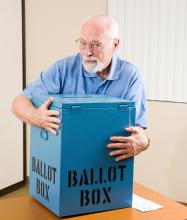
TODAY, THE RIGHT to vote is under assault across the country. From photo ID requirements to restrictions on voter registration, there are new barriers to the ballot box. While proponents of recent election law changes claim those changes are “race-neutral,” the measures will have a disproportionate impact on minority voters.
In Florida, for instance, African Americans made up 32 percent of those who voted on the Sunday before Election Day 2008, often in “all souls to the polls” drives organized by historically black churches. They were among the nearly 8 million Americans who voted early. Florida, Georgia, Ohio, Tennessee, and West Virginia have since passed legislation reducing early voting.
The tea party-infused True the Vote, reportedly bankrolled by Far Right billionaires Charles and David Koch, plans to bring lawsuits to purge the voter rolls of allegedly ineligible voters. While the fear-inducing image of non-citizens voting has little to no basis in reality, it has real consequences.
In Florida, a law passed last year effectively stopped the League of Women Voters, Rock the Vote, and similar groups from conducting voter registration drives this spring. The law imposed restrictions on voter registration volunteers and subjected groups to $1,000-a-day fines if they didn’t turn in voter registration forms within 48 hours of completion. While parts of the law were temporarily blocked at the end of May by a federal judge as unconstitutionally “harsh and impractical,” it has already prevented civic groups from registering voters for some months. Registration drives encourage voting among the young and people of color, who often vote Democratic.